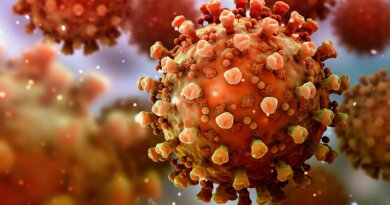How My Bipolar Disorder Treatment Has Helped Me
By Katherine Ponte, as told to Stephanie Watson
I had a normal, happy childhood. I was always ambitious, although somewhat insecure. My parents immigrated from Portugal to Toronto, Canada. Neither of them finished high school. I was very eager to please them by being the first person in my family to go to university. So I always felt pressure to perform well.
I earned my Bachelor of Arts degree in politics and my law degree. After working in Brazil for a few years, I moved to the United States and started the MBA program at Wharton Business School at the University of Pennsylvania. Not only was I insecure that I wasn’t performing at the same level as my classmates, but I was also alone for the first time in my life. My parents were in Canada and my future husband was working in New York.
The academic and career stress, coupled with the loneliness, led me to withdraw and isolate myself. In 2000, I was diagnosed with major depression. I thought it was just a phase that would pass. I went to a psychiatrist and tried medication, but after a couple of weeks without improvement, I stopped taking it.
At around the same time, my father lost his job where he’d worked for 30 years. I was sexually assaulted by a classmate. All of these stressors came together, and I started to act erratically and out of character. I sent a long, rambling email to my classmates — all 800 of them.
My vice dean at Wharton said, “Something’s not right. We have to take you to the counseling office.” Within 5 minutes, they had diagnosed me with bipolar disorder.
Denial
I refused to accept my diagnosis. I felt that I was sick because of everything I was experiencing.
I tried new medication, but I didn’t like the idea of taking it. To me, it was an admission that there was something wrong with me, and I was having a really hard time accepting that I had bipolar disorder.
I managed to graduate from Wharton, but I fell into a deep depression soon afterward and became completely unmotivated. Even when I moved to New York and reunited with my future husband, it was a very difficult time. Sometimes I felt so depressed that I couldn’t get out of bed.
Crisis
For 6 years, I went untreated. Then in 2006, I had a major crisis. I thought the world was coming to an end and I was the messenger who was going to save it. When my husband came home one day, the apartment was a disaster. I had torn it apart. My mania and psychosis had become so severe that he had to call 911.
Three police officers and two paramedics arrived at my apartment. It felt more like a criminal arrest than a medical emergency. They strapped me into a wheelchair and took me away in an ambulance to the hospital.
I landed in the psychiatric emergency room. The doctor who admitted me opened the American Psychiatric Association Diagnostic and Statistical Manual (DSM) up to bipolar disorder. He asked me, “Are you experiencing any of these symptoms?” and pointed to the page. I said, “No, no, no.” But he said, “Yes, yes, yes.”
For 2 days, I lay on a gurney in the psychiatric emergency room hallway because the hospital didn’t have any open rooms. They heavily sedated me to bring me down from my severe manic episode. I woke up in leather restraints in a lockdown unit. It was disturbing.
Before I was discharged, I had to arrange to meet with a psychiatrist for treatment. Within weeks of starting my medication, I felt that I was cured and no longer needed it. So I came off the medicine, got sick, and was hospitalized again. I was hospitalized three times — in 2006, 2010, and 2014. A separate manic episode led to my arrest for breaking into a house of worship to pray, because I again thought the world was ending.
A New Direction
The turning point for me came during my last hospitalization in 2014, when I watched a video of a woman who was living with schizophrenia. I couldn’t believe that she was actually living a full life. She was running her own company. She seemed 100% stable. She seemed happy.
I started to believe that I could be happy, too.
I got involved with peer support, meeting and speaking to other people with mental illness. It really helped. In fact, it was critical to my recovery. They understand what it’s like to live with mental illness. This gave me hope, which motivated me to act.
I had to find the right medication and the right psychiatrist. I’d been with two psychiatrists for 5 years each, and it felt like they were just keeping me alive. They were trying to address my symptoms and protect me from being hospitalized, but my condition wasn’t improving.
I was on a medication regimen that was making me sleep 14 hours a day and had caused me to gain 60 pounds. My condition was getting worse. I had to find a new doctor.
A bipolar disorder clinic I’d contacted in California referred me to a local psychopharmacologist — a doctor who specializes in using medicine to treat mental disorders. I felt like, either I’m going to try this or I’m going to continue to be unhappy.
When I met with the doctor, I told him, “I want to go off this medication that’s causing me to sleep. I don’t want to be obese anymore. I want to be able to work and do something with my life, not live this sedated life that I’m living.”
My doctor gave me medication options and then asked for my preference. It was a completely different treatment approach than I’d ever experienced, called shared decision making. I was shocked that he was actually asking me what medicine I preferred. That to me was a sign that he respected my opinion.
My new doctor didn’t just treat me to address symptoms and side effects and avoid risks. He treated me to achieve my life goals.
He took me off the medicine that was making me sleep for 14 hours a day and making it nearly impossible to lose weight. Then he put me on six medications, including mood stabilizers for my mania and depression. Within 2 days, I was down to 10 hours of sleep a day. Within 6 months, I had lost 50 pounds.
I don’t like taking medication, but once I saw that the medications allowed me to live a fuller and more meaningful life, I accepted being on them. I’ve been stable since 2016.
My spouse has also played a tremendously important role in my recovery. Families can play a critical role in the recovery of their loved ones.
My mother recently sent my doctor a card. In it she wrote, “Thank you for giving us our Kathy back.” He said it made him teary-eyed.
Paying It Forward
When you’re in the psych unit, there are no get-well wishes or flowers. There’s very little hope that you’re going to get well. Once I started to get better, my mother began to send me cards once a week, and they really made me feel better. I wanted to do the same for other people.
I started this program where twice a month, I visit the psychiatric units at two hospitals in New York. I get people to donate greeting cards to me, which I distribute to patients. Patients also decorate and leave their own messages on cards for other patients. During these visits, I talk to the patients and share my lived experience. That makes them perk up. They say, “Oh, you’re one of us. You understand where we’re at and how we’re feeling.”
I also created an online peer support community for people living with mental illness, substance abuse, and stressful life events, called ForLikeMinds. We have over 10,000 members. It’s a place for people to meet and share their experiences. Peer support was really important to me during my recovery.
In addition, I recently created a coaching service called Peersights. I help people and families living with mental illness pursue recovery. The objective is to inspire hope, help them find the resources they need to get better, and improve communication among themselves and with doctors so they can better advocate for their own needs.




